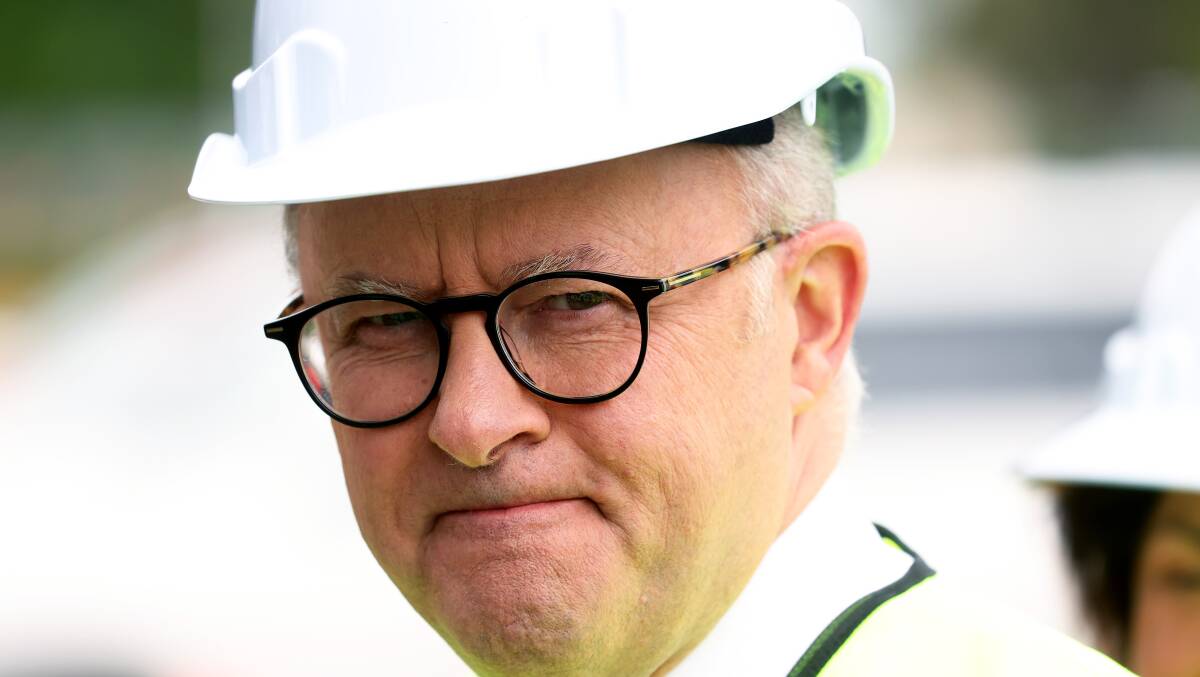Prime Minister Anthony Albanese's unveiling of an ambitious plan to renew the advanced manufacturing industry and subsidise the green energy sector with billions of taxpayer dollars under the Future Made in Australia will feed an entire class of businesses dependent on government handouts while other sectors are left to fend for themselves.
While it's true that the country needs "sharper elbows when it comes to marking out our national interest", he is forgetting to include the myriad Australian small businesses and industries currently under threat at a time when high inflation and reduced consumer spending is cutting into wafer-thin bottom lines.
As it stands businesses are exiting the market at a higher rate than those entering the market with the latest ABS figures registering 137,940 business closures. Meanwhile the number of new businesses are at the lowest it has been in four years. Data from the Australian Small Business Ombudsman shows 43 per cent of small businesses are making zero profit.
Without a doubt these numbers reflect what business owners have been seeing for some time. Punishingly volatile trading conditions and bureaucratic red tape is crushing a sector that is the biggest employer of Australians and is a significant source of innovation and wealth generation. So why is the PM only focusing on green energy and advanced manufacturing (robotics) alone?
"We need to be clear-eyed about the economic realities of this decade, recognising that the game has changed and the role of government needs to evolve," he said in his speech to the Queensland Media Club.
One wonders whether he really meant it or if this is a cynical attempt at giving the impression that the government equally supports all Australian made activities including small businesses and entrepreneurs instead of a handful of already wealthy investors.

Withholding funding and reserving support and opportunities for entrepreneurs, students and small businesses and universities on the condition they align to the government's ideology of the day is hardly fair especially when the areas of advanced manufacturing - a catchall term for robotics and AI - and clean energy sit firmly in the purview of well-oiled multinational corporations.
Mike Cannon-Brookes and AGL are more than welcome to turn the Hunter Valley into a solar manufacturing hub, but they can do it without dipping into taxpayers' pockets.
The real implication of the Future Made in Australia is that anything that sits outside of those key industries will not be supported or funded by the government; they will be neglected and fall by the wayside.
If the government truly wants a nationalist approach to entrepreneurship and business, there's no need to waste time and money on legislating it, they need only slash the tape, reduce burdensome taxes and permit small businesses and entrepreneurs to grow in the areas of where they see there is a need.
It is maddening that the government is using ideology to justify its poor record of protecting vulnerable industries even as it advances its agenda at all cost.
Every tender is now skewed towards net zero, even if it isn't realistic to do so, even as small business owners bow out of the game at an ever increasing rate.
To boost investment, create jobs and "seize the opportunity" of an Australian-made future, one must include wide cross sections of society.
READ MORE:
Employment programs for women for example shouldn't be based on just one sector - the net zero sector - it should be based on employment within the industries that actually have the jobs. This could be aged care, construction, sustainability, and so on.
We don't need to throw more money at projects that if meritorious should be able to succeed without taxpayer dollars.
We need policies that nurture a healthy spread of businesses across multiple industries. In this case the government appears to ignore the wisdom of not putting all your eggs in one basket.
We must question who the real winners are here?
- Amanda Rose is the founder of Entrepreneurial & Small Business Women Australia.

